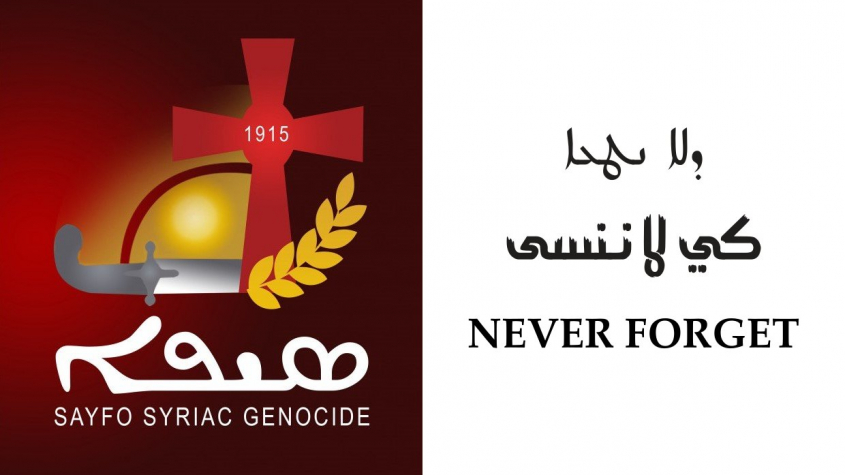Joint Motion to recognize 1915 Sayfo Genocide introduced in Irish Parliament
DUBLIN — People Before Profit–Solidarity (PBP-S) MP Paul Murphy introduced a motion to Ireland’s Dáil Éireann — the lower house and Ireland’s principal chamber — this week calling on the Irish government to recognize, teach, and commemorate the 1915 Sayfo Genocide on the Christians in the Ottoman Empire. Murphy’s motion is co-sponsored by members of Solidarity (Neart le Chéile), Sinn Féin, the Social Democrats (Na Daonlathaithe Sóisialta, SocDems), and the Labour Party (Páirtí an Lucht Oibre) and is now included for debate in the lower house.
Murphy commented on his introduction of the motion that, “With a genocide happening right now in Gaza, it is vital that we recognize the Armenian genocide that took place 110 years ago. This genocide which saw around 1.5 million people [Armenians, Syriacs (Arameans–Assyrians–Chaldeans), and Greeks] killed set the template for subsequent genocides to today — ethnic cleansing, forced displacement and famine.” Co-sponsor MP Duncan Smith (Labour Party), stated that:
“The passage of time should not diminish the call for truth and justice. The Armenian Genocide has for too long been forgotten by history. This motion goes a small way to helping to correct that historical justice.”
The Irish government has never recognized the Sayfo genocide of 1915 as such. In response to recent questions from Labour MP Smith to the Minister for Foreign Affairs, asking whether the Irish state recognizes the historical fact that genocide against the people of Armenia was committed by the Ottoman Empire in 1915, the Minister replied (given here in full):
“The Government views the terrible events which saw the deaths of a large number of the Armenian population in the Ottoman Empire as a tragedy, and has expressed deepest sympathy for the enormous suffering of the Armenian people during this period.
The term ‘genocide’ has a particular meaning under international law. The Government has not taken a stance on whether those terrible events should be described as a genocide. To reach a conclusion that any event amounts to genocide involves the consideration and determination of a number of complex factual and legal issues, including an assessment of the actions and intentions of many parties.
Currently, there is no international consensus on whether these events amount to genocide. No Irish or international court has issued a final judgment recognizing these terrible events as an act of genocide.
Ireland’s position on the description of these events does not diminish in any way our recognition of the terrible and shocking nature of what occurred to the Armenian people between 1915 and 1917.
Unfortunately, the cross-party motion has no mention of the other Christian peoples massacred in 1915 by the hands of Ottomans Turks and Kurds. It seems that knowledge about the scope and depth of the horrific Sayfo Genocide has not only failed to reach Turkish parliament but also other parliaments.”






















